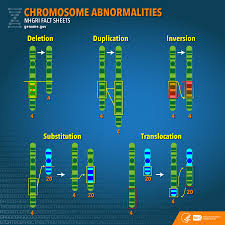Epithelial cells, which line many body surfaces, can transform into several types of cancer. These transformed cancer cells often have an abnormal number of chromosomes, either more or less than the standard 23 pairs of chromosomes. This condition, called aneuploidy, is a hallmark of cancer, and it is commonly seen in breast cancer.
A few studies in recent years have used advanced genetic sequencing techniques to detect small numbers of aneuploid cells in normal body tissues, including the brain, colon, liver, lymphocytes, and sperm. But the significance of these rare aneuploid cells in healthy tissues is not well understood.
A research team led by Dr. Nicholas Navin of the University of Texas MD Anderson Cancer Center set out to learn about the prevalence and potential impact of aneuploid epithelial cells in normal breast tissue. They analyzed breast epithelial cells from 49 women who were undergoing breast reduction surgery. All of the women were healthy and had no signs of breast cancer. Their ages ranged from 18 to 63.
The researchers used a combination of advanced sequencing techniques to assess chromosome additions and deletions in more than 83,000 breast epithelial cells from these women. They then compared their findings to previously gathered data from women who had invasive breast cancer. Study results appeared in Nature on November 20, 2024.
The researchers found that all of the 49 healthy women harbored rare aneuploid epithelial cells in their breast tissue. A median of about 3% of the tested cells in each woman were aneuploid. The number of aneuploid epithelial cells in each woman tended to increase with age. Most of these abnormal cells (median more than 80%) had undergone significant chromosomal changes, many of which are seen in invasive breast cancers.
The findings suggest that most healthy women have low levels of aneuploid cells in their breast tissues. Additional studies are needed to determine if increased levels of these rare cells raise the risk for future breast cancer. In addition, the researchers note that their findings might also be applicable to other organs and tissues that contain epithelial cells.
“We’ve always been taught that normal cells have 23 pairs of chromosomes. But that appears to be inaccurate because every healthy woman that we analyzed in our study had irregularities, bringing up the very provocative question about when cancer actually occurs,” Navin says. “This has pretty big implications not just for the field of breast cancer, but potentially for multiple cancer types.”
congenital disorders, genetic mutations, chromosomal abnormalities, birth defects, developmental delay, neurological disorders, metabolic disorders, structural anomalies, rare diseases, prenatal diagnosis, hereditary conditions, gene expression, syndromic features, phenotype variation, molecular abnormalities, clinical manifestations, diagnostic imaging, pathophysiology, cellular dysfunction,
#abnormalities, #geneticdisorders, #birthdefects, #neurologicalabnormalities, #congenitaldisorders, #chromosomalanomalies, #raredisease, #developmentaldelay, #prenataldiagnosis, #moleculargenetics, #clinicalresearch, #genemutation, #phenotypevariation, #medicalgenetics, #structuraldisorders, #epigenetics, #diagnosticimaging, #metabolicdisorders, #healthresearch, and #cellulardysfunction
International Conference on Genetics and Genomics of Diseases
Visit: genetics-conferences.healthcarek.com
Award Nomination: genetics-conferences.healthcarek.com/award-nomination/?ecategory=Awards&rcategory=Awardee
Award registration: genetics-conferences.healthcarek.com/award-registration/
For Enquiries: contact@healthcarek.com
Get Connected Here
---------------------------------
---------------------------------
in.pinterest.com/Dorita0211
twitter.com/Dorita_02_11_
facebook.com/profile.php?id=61555903296992
instagram.com/p/C4ukfcOsK36
genetics-awards.blogspot.com/
youtube.com/@GeneticsHealthcare

Comments
Post a Comment